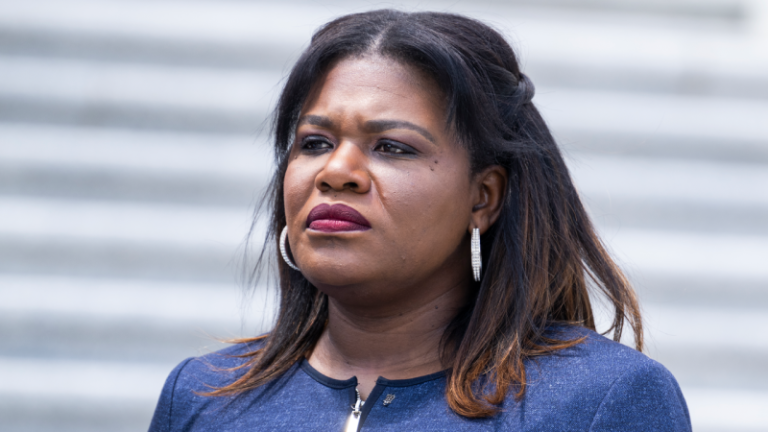Rep. Cori Bush, D-Mo., appeared to accuse her Republican colleagues of spreading ‘White supremacy’ during a congressional hearing on anti-LGBT hate crimes Wednesday.
The House Oversight and Reform Committee heard from witnesses, including victims of the Club Q and Pulse Nightclub shootings, as well as activists within the LGBT community and crime experts. Bush took the mic after several hours of testimony and appeared to attack her Republican colleagues.
‘Thank you madam chair for convening this important hearing, and let me say to the witnesses, thank you for your testimony. Thank you for staying, and sorry you have to listen to the White supremacy raise its ugly head, you know, throughout this hearing,’ Bush stated.
Rep. James Comer, R-Ky., immediately took offense at the slight as the ranking member on the committee.
‘That – that, madam chair. I mean, my God,’ Comer said as Bush continued speaking.
Comer raised the issue again after Bush finished her five minutes of questioning.
‘You know, I’m not even gonna comment on what Ms. Bush said, but I’ll say this: Crime is going to be a top priority for Republicans in this committee in the next Congress, and perhaps Ms. Bush could come give us some pointers on how she’s reduced crime in St. Louis since she’s been in Congress and what her ideas are to further reduce crime in St. Louis–wait a minute, St. Louis has one of the highest crime rates in America,’ Comer said.
Comer is in line to become chairman of the House Oversight Committee when Republicans take control of the House on Jan. 3.
Bush’s office did not respond to a request for comment from Fox News Digital.
Bush is among the most divisive members of Congress and is frequently in the spotlight for her attacks on policing in the U.S. She remains one of the main proponents of the ‘defund the police’ movement.
Many have accused Bush of hypocrisy on the topic, however, given she spent nearly $500,000 in campaign funds on private security.
Bush’s attacks on police have received pushback from even some Democrats, who argue the messaging could hurt the party in elections.

